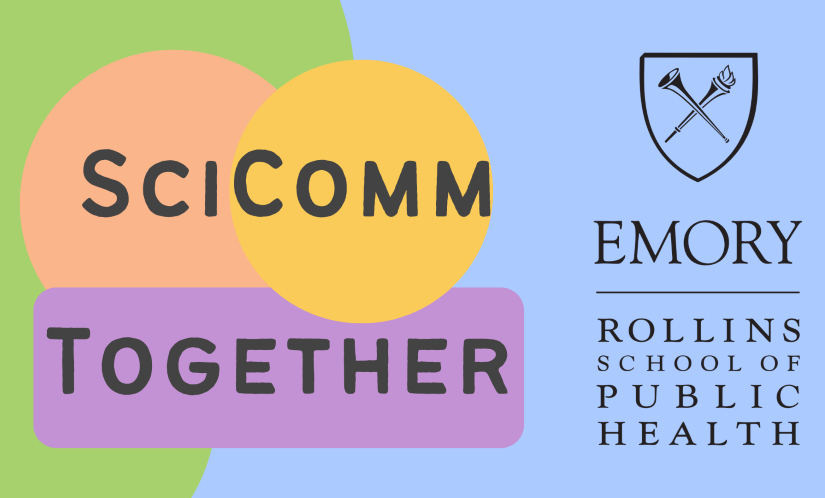Social Media Influencers Share Insights, Advice at First SciComm Together Event

On March 7, the Department of Communications and Marketing at Rollins hosted the first event of its new science communication series, SciComm Together. Carmen Marsit, PhD, executive associate dean for faculty affairs and research strategy, moderated a panel discussion about using social media to fight misinformation.
The panel featured Natalie Dean, PhD, assistant professor of biostatistics and bioinformatics, and Laurel Bristow, associate director of audience development. Both grew social media followings during the height of the COVID-19 pandemic—Dean on Twitter (now X), where she currently has 127,200 followers, and Bristow on Instagram, where she has 394,000—and used their platforms to inform their audiences about the science of the virus while battling misinformation. Below are a few of the big takeaways from the discussion.
Watch the full event here.
Impactful Insights
Know your audience and the best platform to reach them.
“[Twitter] was where my colleagues were and that's where the information was coming in,” says Dean. Aside from infectious disease epidemiologists, Dean also found Twitter/X as a useful way to reach people in adjacent fields, and members of the media. “There are a lot of reporters on Twitter, so that ended up being a useful way to connect with them and they would sometimes use tweets as content as well.”
Collaboration is vital to science communication.
“I was lucky that I worked at Emory School of Medicine [at the time] and had so many people [in my network] in so many different fields … and everyone was very collaborative and willing,” says Bristow. “There are so many people who are so smart, but they have no interest in communicating with the public. And so, they were available to me as a colleague that I could ask questions. I leaned super heavily on that. I was able to say, look, I am not an expert, but I have access to a network of experts, so I'm going to talk to them.”
Being genuine will help your message resonate.
“Genuine enthusiasm for any topic is very contagious, and I think people are really sensitive to authenticity. They don't want anything that feels too phony or self-serving,” says Dean. “I think if you really care about a topic and you're excited about sharing it, you're excited about teaching it.”
If you are sharing yourself online, remember to protect your mental health.
“My advice is to protect yourself first,” says Bristow. “I had some weird complex at the beginning where I was like, I'm not going to block anyone. Everyone deserves access to this information. [But] if people are harassing you, you can block them. No one is required to have access to you. When I had a period where I just stopped checking my DM request folder on Instagram, my mental health got exponentially better.”